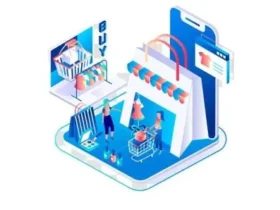What is Referral Marketing?
Referral marketing is a promotional strategy that encourages existing customers to refer new customers, usually with an incentive. Although referrals can happen organically, businesses can also use dedicated referral programs. Referral marketing helps spread the review or appreciation about a product or service through business existing customers, rather than traditional advertising.
Referral campaigns rely on word-of-mouth recommendations from satisfied customers to acquire new customers. A referral program is a cost-effective and efficient way to grow your customer base and increase brand awareness.
There’s usually some form of incentive or reward offered for customers to refer other people. Referral marketing can be highly effective for online businesses because of the popularity of social media and sharing sites. Internet referral marketing can potentially spread faster and to a wider audience than most offline marketing strategies.
How does Referral Marketing Work?
The general effectiveness of referral marketing programs is based on the premise that customers want to share their reviews and stories about the products they buy and the brands they choose. This becomes magnified when the buying experience and products are exceptional.
Word-of-mouth marketing or referral marketing occurs when people tell each other about a business, it is also considered a form of referral marketing. Referral programs such as refer-a-friend are designed to generate word-of-mouth publicity and incentivize users to tell more and more people about the business. When combined with social media, referral programs can generate more leads and sales than any other marketing program.
How to Start a Referral Program
A simple monetary referral program is one of the easiest ways to generate referral traffic. The business can start by offering customers cash rewards to promote the brand. Project management software Basecamp took this approach by providing their customers and referrals $50 each for signing up. This 50/50 split gave the current customer and the new referral an equal incentive to start.
Referral Marketing Strategies
-
Market Research is Critical before Implementing Referral Program
Market Research is the first step to developing a referral marketing strategy. With referral marketing, initial research will often include discovering what customers want. If the incentives are worthless or undesirable to the company’s existing customer base, the customers will not be interested enough to participate in the referral program.
-
Identify your brand advocates
Identify your most loyal and satisfied customers who are likely to refer others. Focus your referral marketing efforts on them. Monitor social media, online reviews, and customer feedback to spot those who consistently advocate for your brand. Engage with them, express your appreciation, and encourage them to participate in your referral program.
-
Create a referral program and plan sustainable incentives
Develop a structured referral program that incentivizes your existing customers to refer their friends and acquaintances. Offer rewards such as discounts, credits, loyalty points, or exclusive perks for successful referrals. Plan Sustainable Incentives for Referral Marketing Program.
The incentive should nor be too low for customers to worth putting any effort, neither it should be too high that erode the business profitability. Make the program easy to understand and participate in. Provide clear instructions on how referrals can be made and how rewards will be earned.
A good referral marketing campaign idea is to implement a tiered reward system where customers receive additional benefits or higher-value rewards as they refer more people. This motivates customers to continue referring and helps create a sense of competition among referrers. -
Provide personalized customer experiences
Happy customers are more likely to refer others to your business. Focus on delivering exceptional customer service and exceeding expectations. Personalize interactions, address concerns promptly, and go the extra mile to make your customers feel valued. Personalizing the referral experience can increase the likelihood of a successful referral. Use data about the customer’s preferences and behavior to create personalized messages and offers.
-
Use referral codes and links
Make it simple and straightforward for customers to refer their colleagues, friends and family. Provide unique referral codes or links to your customers to track their referrals accurately. This allows you to reward them appropriately for successful referrals and helps you measure the effectiveness of your referral program.
Customers should be able to easily share referral code or link on social media or through email. Consider creating pre-written messages or social media posts that customers can easily share with their networks. -
Leverage email marketing
Utilize your email list to promote your referral program and encourage existing customers to refer others. Send personalized referral invitations, highlight the benefits of participating, and include clear instructions on how to refer others.
-
Social media advocacy
Encourage customers to share their positive experiences and referral links on social media channels. Run social contests or campaigns where customers can post about your brand, tag their friends, and participate in the referral program. This generates social proof and expands your reach.
-
Partner with influencers or affiliates
Collaborate with influencers or affiliates in your industry who have a large following and a trusted reputation. Offer them incentives to promote your brand and referral program to their audience. Their endorsement can greatly amplify your referral efforts.
-
Monitor and track referrals
Use technology to track and monitor referral activities. This will help you identify your most effective referral sources, measure the success of your program, and reward customers accurately. There are many referral marketing software tools available that can assist with this process. The analytics data can help you refine your approach and focus on what works best.
-
Follow up and acknowledge referrals
When a referral leads to a new customer, make sure to acknowledge and thank both the referrer and the new customer. Send personalized messages, provide rewards promptly, and show your appreciation for their support.
-
Continuously optimize and improve
Referral marketing is an ongoing process. Regularly evaluate your referral program’s performance, test different strategies, and make adjustments based on feedback and data analysis. Stay responsive to customer needs and preferences to keep your referral program effective.
Example of Referral Marketing
For example, Dropbox, an online file storage company that offers both free and paid services, implemented a referral program in 2009 asking users to tell their friends about the service. The program offered rewards for both sides of the referral coin—those who signed up for a referral link would get additional free space, and the person who referred them would also get more space.
By 2010, referrals accounted for around 35% of their daily signups, and Dropbox signups had permanently increased by 60% overall. The company estimated that within a 30-day period (April 2010), its users had sent more than 2.8 million direct referral invitations.
Benefits of Referral Program
There’s no better advocate for a company than a satisfied customer. That’s why referral programs work. When existing customers refer their friends and colleagues, they tell them how valuable the brand truly is. According to research, referred customers have 16 percent higher LTV and 18 percent less churn than those acquired by other methods. Customers with high LTV and low churn are the backbone of any strong, fast-growth eCommerce business. The first step for your business is to find out what motivates your existing customers to refer your business to their friends. You can then use the information to build a referral program.
Referral marketing can be an effective way to acquire new customers and build loyalty among existing ones. The success of your referral marketing strategy relies on providing exceptional customer experiences, building strong relationships with your customers, and continually nurturing those relationships.
By implementing referral marketing strategies, businesses can create a successful referral program that drives growth and revenue. Referral marketing is most effective when combined with digital marketing plan. It should be integrated into your overall online marketing strategy to maximize its impact on customer acquisition and brand growth.

Hunaid Germanwala is a digital marketer and content creator at Health Products For You since 2014. He has an MS from Ulm University in Germany. His mind is always buzzing with creative ideas and is eager to explore new perspectives. His motto in life is “Better to Light the Candle than to Curse the Darkness.”














Leave a Reply